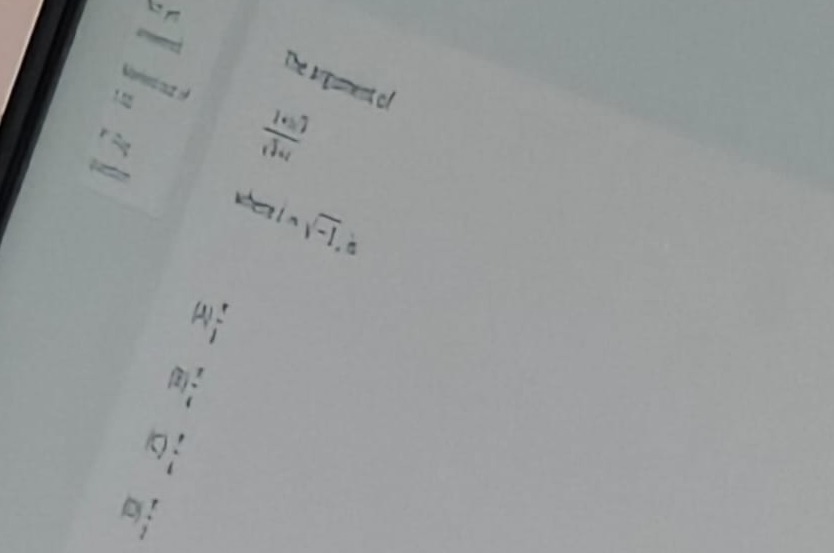Question
Question: The argument of $\frac{1+i\sqrt{3}}{\sqrt{3}+i}$ where $i = \sqrt{-1}$, is...
The argument of
3+i1+i3
where i=−1, is

3π
6π
2π
4π
6π
Solution
To find the argument of the complex number Z=3+i1+i3, we can use the property of arguments: arg(z2z1)=arg(z1)−arg(z2).
Let z1=1+i3 and z2=3+i.
-
Find the argument of z1=1+i3:
The complex number z1 is in the first quadrant (real part is positive, imaginary part is positive). Let θ1=arg(z1). tanθ1=Real partImaginary part=13=3. Since 0<θ1<2π, we have θ1=3π.
-
Find the argument of z2=3+i:
The complex number z2 is also in the first quadrant. Let θ2=arg(z2). tanθ2=Real partImaginary part=31. Since 0<θ2<2π, we have θ2=6π.
-
Calculate the argument of Z=z2z1:
arg(Z)=arg(z1)−arg(z2) arg(Z)=3π−6π To subtract, find a common denominator: arg(Z)=62π−6π=62π−π=6π.
Alternatively, we can first simplify the complex number by multiplying the numerator and denominator by the conjugate of the denominator: Z=3+i1+i3×3−i3−i Z=(3)2−(i)2(1)(3)+(1)(−i)+(i3)(3)+(i3)(−i) Z=3−(−1)3−i+3i−i23 Z=43+2i+3 Z=423+2i Z=23+i21
Now, find the argument of Z=23+i21: Let ϕ=arg(Z). Since Z is in the first quadrant. tanϕ=Real partImaginary part=3/21/2=31. Therefore, ϕ=6π.
